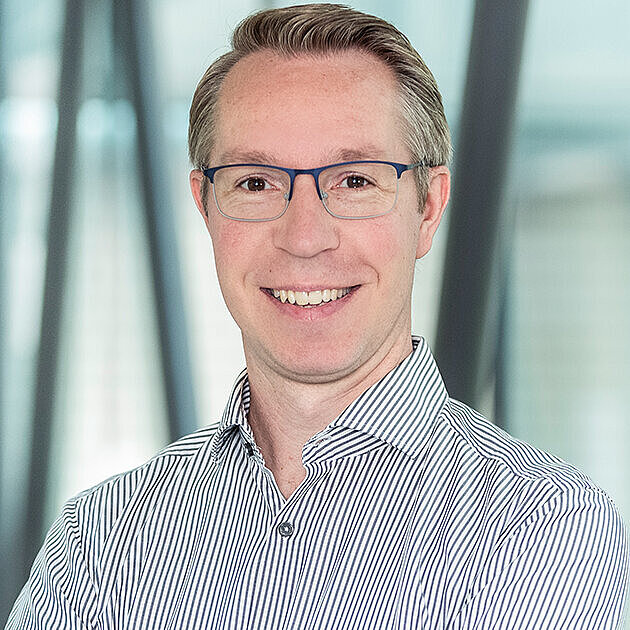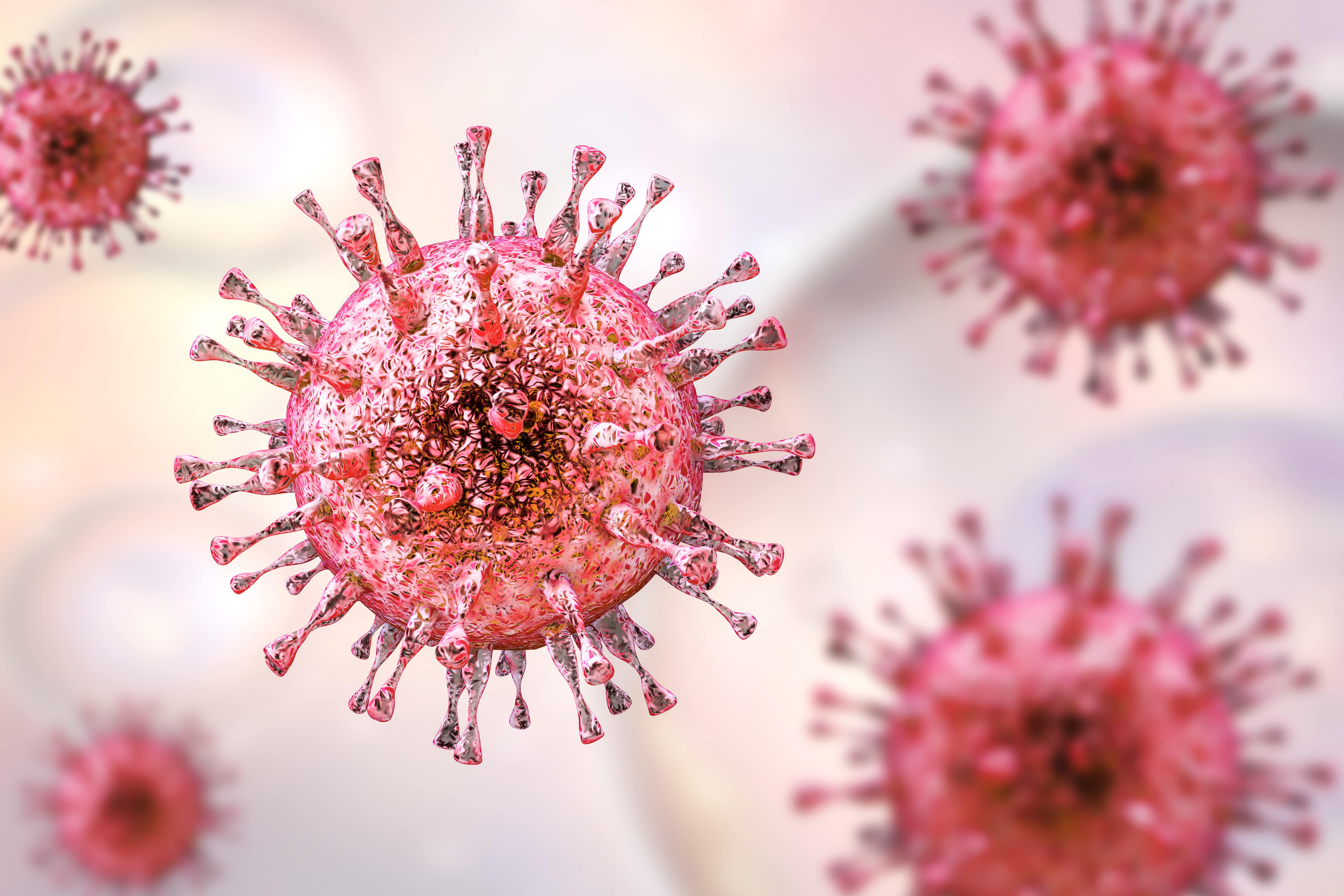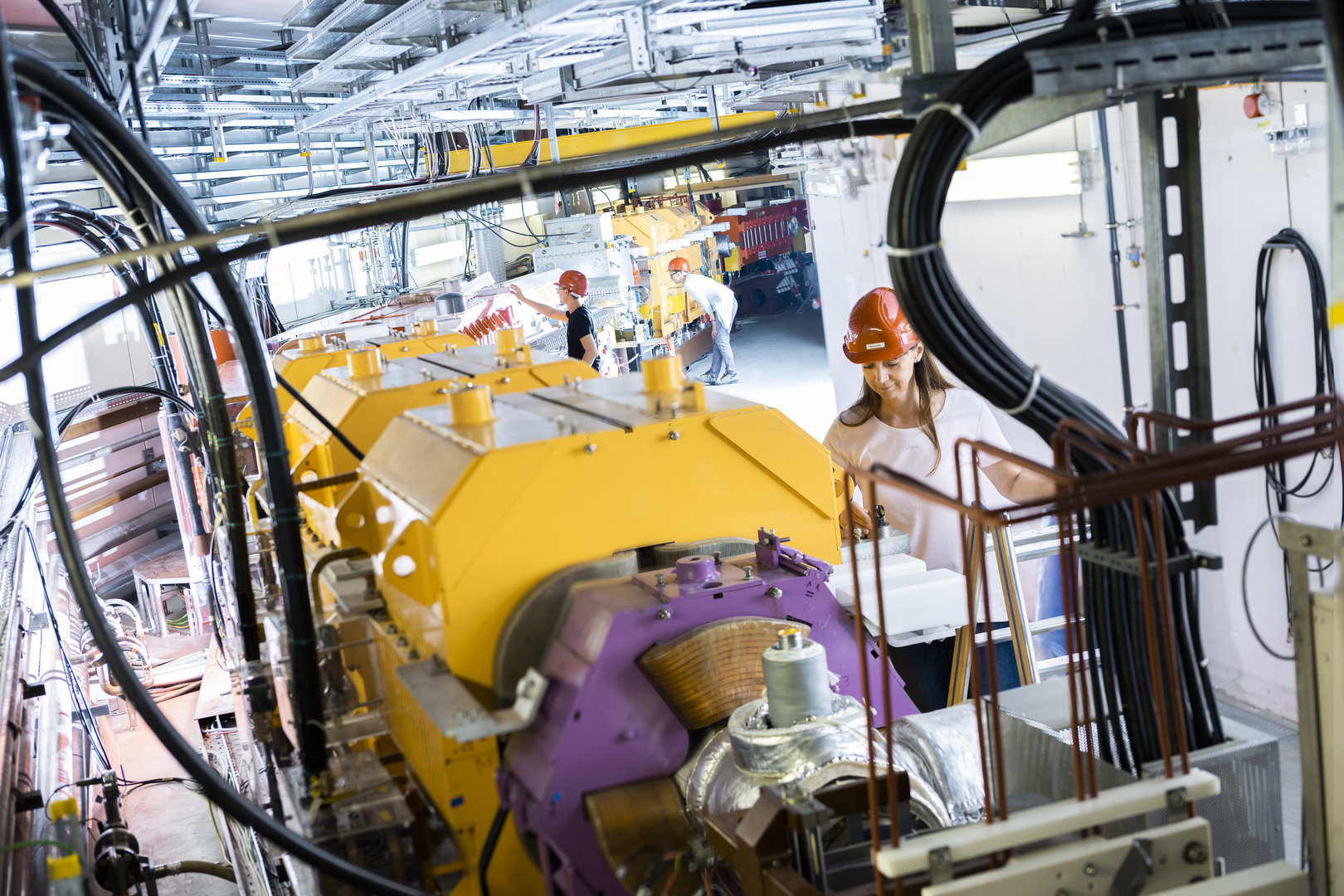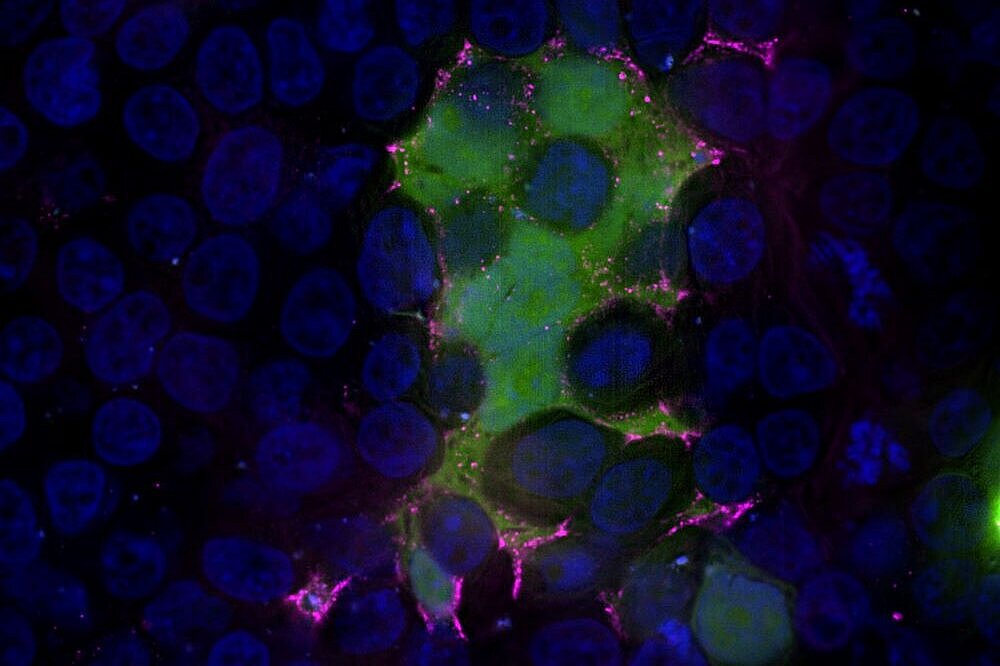Just a single dose of vaccine, a small prick, and you have reliable lifelong immunity against dangerous viral pathogens. No need for regular booster shots. “This is exactly the kind of vaccine we would all like to have, especially in the context of future pandemics,” says Prof. Luka Cicin-Sain, head of the Viral Immunology Department at the HZI. ”Our newly developed vaccine technology could provide particularly long-lasting, perhaps even lifelong protection in the future, and potentially against several pathogens at the same time.”
In 2023, the HZI research team led by Cicin-Sain already tested the new vaccine technology based on the mouse cytomegalovirus (MCMV) in an initial exploratory phase for a possible transfer to application as part of a BMBF-funded pilot project. CMV is a herpes virus that remains in the body for life and regularly activates the immune system. But could MCMV as a carrier virus of a vaccine pose a danger to humans as well? “No, MCMV is a virus that originates from the mouse and is very well adapted to the mouse. It is not capable of replication in the human body and cannot make us sick,” explains Dr. Henning Jacobsen, scientist in the Viral Immunology Department at HZI and VIVA-VEK-2 project leader. “That is why this virus is excellent as a so-called vector for introducing selected antigens of pathogens that are to be vaccinated against into the body and ensuring a long-lasting activation of the immune system.”
In the VIVA-VEK-2 project, the researchers want to develop and test a vaccine candidate against the respiratory syncytial virus (RSV) using their MCMV vaccine vector technology. RSV is a globally prevalent pathogen that can cause severe respiratory infections. “The protein-based vaccines against RSV that have been approved since 2023 are effective, but initial studies show that the protective effect drops to below 50 percent after just three years,” says Cicin-Sain. “The duration of a vaccine's protective effect is an important criterion, however: If a vaccination is not completed or not refreshed in time, for example because people do not want to be re-vaccinated or simply forget to do so in their daily lives, there is a risk that they will not be sufficiently protected. And every booster vaccination generates costs that place a burden on the healthcare system.” A one-time vaccination with long-lasting protection would therefore be a real game changer in many respects.
The researchers are constructing their new RSV vaccine candidate using genetic methods: They are inserting a specific gene of the RS virus, which codes for the so-called RSV Pre-F protein, into the MCMV vector. In doing so, they replace a particularly active gene from the MCMV. The researchers expect that this will increase the safety of the vaccine and also boost the immune response. In studies in a large animal model, the researchers will characterize the immune response triggered and test the efficacy and tolerability of the RSV vaccine candidate. If the project is successful, the researchers estimate that the RSV vaccine candidate could be tested in humans for the first time in about three years.
The VIVA-VEK-2 project is entering the feasibility phase and will be funded by the German Federal Ministry of Education and Research (BMBF) for two years with a funding volume of one million euros as part of the GO-Bio initial program. GO-Bio initial supports life science research approaches with innovation potential and paves the way for transfer to industry. “We hope that we will achieve similarly promising results with VIVA-VEK-2 as in our preliminary investigations. Then we could actually consider a spin-off for the development of an RSV vaccine based on MCMV vaccine vector technology,” says project leader Jacobsen. “It is great that the funding will enable us to further develop a promising new vaccine technology and perhaps even bring it to market in the future.”
As early as October 2024, a research team led by Dr. Katarina Cirnski from the Helmholtz Institute for Pharmaceutical Research Saarland (HIPS), a site of the HZI in cooperation with Saarland University, successfully secured funding from the GO-Bio initial program. The funding will serve as seed financing for the establishment of a spin-off company to combat the growing challenge of antibiotic resistance in sexually transmitted diseases. Specifically, the team plans to protect its intellectual property, conduct market and freedom-to-operate analyses, and identify the necessary partners and experiments to assess the feasibility of the project. The insights gained from this work will provide direction for the subsequent program to optimize the lead structure, which will focus on efficacy in vitro and in vivo, safety and cost-effective production, and should lead to Phase I clinical trials.
Text: Nicole Silbermann




